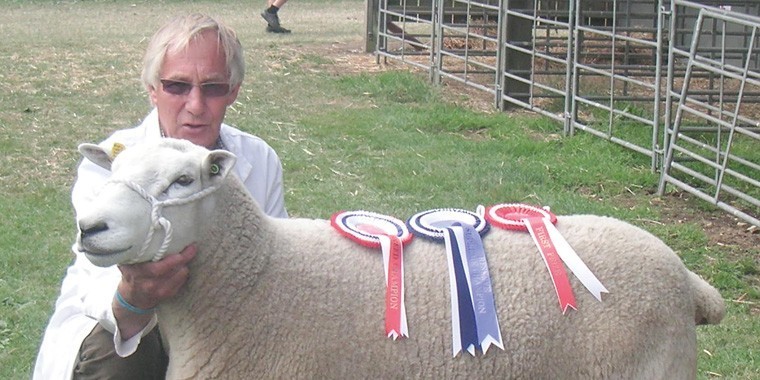It is amazing what good deals you can get booking early online, although I’m convinced that Eurostar save all the rubbish seats for those travelling on discounted fares: seats by a pillar, rather than a window, both out and inbound are too much of a coincidence.
On a recent short break in Bruges, I was reminded just how much the British sheep industry has contributed throughout history to our national economy. Just to put this into context, we were in an exhibition looking at the development of Bruges as a city. In the thirteenth century, Bruges was probably the most important trading centre in Europe, with a vast network of trading connections. And what was its most important traded commodity? English wool! Wool for the Flemish weavers, producing fine, high quality cloth to be traded all over Europe and beyond.
The importance of sheep and the wool that came off their backs, did however begin very much earlier than the thirteenth century. British wool was much prized by the Romans and along with tin and wheat was the most important of British trade goods with the Roman Empire, a long time before Caesar decided to invade and take over the business. The further the Roman Empire pushed into colder climes of northern Europe the more important British wool became to provide the raw material for warm cloaks for the soldiers of the Roman legions.
The wool trade was the mainstay and driving force of the English economy throughout Medieval times, most importantly in the form of exports of raw wool, which also generated vast fortunes for the larger producers, wool merchants and royal coffers through taxes. To this day the Lord High Chancellor in the House of Lords sits upon a large woolen cushion known as the woolsack, a reflection of the contribution that wool and the wool trade made to generating wealth in England during the Middle Ages.
Wool processing in Britain was largely in the form of small scale, local producers weaving fairly coarse cloth for domestic use, with finer cloths imported from Flanders and beyond, often made using English wool. It wasn’t until the fourteenth and fifteenth centuries that highly skilled Flemish weavers, fleeing the horrors of the Hundred Years War, established themselves in England and began to establish an important export trade in fine woolen cloths.
Wool processing remained a cottage industry for a long time, but as export demands grew, centralisation of the woolen cloth manufacture led to the development of the first factories, initially situated mainly on the Pennines where high rainfall and acidic rocks ensured abundant supplies of soft water for washing wool and for water power.
Later skills developed in the spinning and weaving of woollen cloth were easily adapted to the processing of cotton, with raw material coming in from our colonies across the Atlantic. Increasing demand for both wool and cotton textiles created the demand for mechanisation, which led to the development of steam power, the coal industry, the iron and steel industries and in the eighteenth century precipitated the start of the industrial revolution.
This was a revolution which began in the UK, but a revolution that was to inspire industrialisation around the globe. A revolution that triggered the development of our service industries, banking, insurance etc. and of our infrastructure, firstly improved roads, then canals and next railways, all to move raw materials around the country and finished products for export. This was a revolution that had its roots very firmly in the woolen industry, wool grown on the backs of English sheep, wool produced by English flock masters.
There were of course benefits to agriculture from the industrialisation, but that is another story. The key issue is that it was the sheep industry that was the lynchpin of the British economy and it was wool and wool processing which precipitated the huge growth in economic activity with the coming of the industrial revolution. It was our sheep and our wool that facilitated the development of the economy of the UK, something that as sheep keepers we should all be proud of.
We cannot live in the past, but we should remember our history. It is our history that has made us what we are, and it is both very sad and ironic that an industry that generated so much wealth and which played such an important part in the development of the British economy is in danger of being brought to its knees by the domestic and global economic systems that we helped to create.
A little regard for the important contribution that the sheep industry has made in our economic history and a little bit of support from the public in buying British produce would really be very much appreciated and would help return the sheep industry to the position of prominence that it deserves. Having said that it is a position that we as sheep producers do not occupy as a right. We do have to do our bit to earn that position of prominence, but we do need to be given a fair chance!




